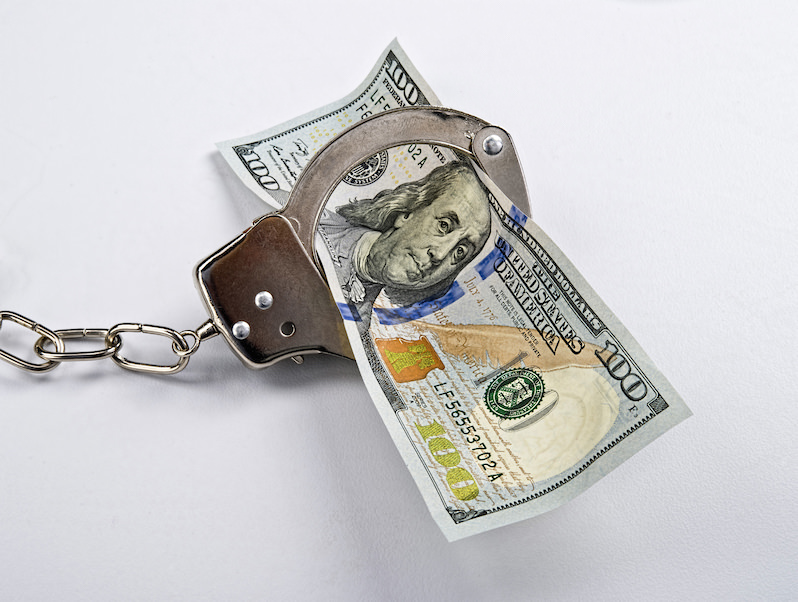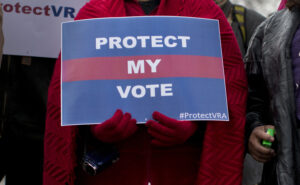Across the Nation, States Charge Inmates for Prison Costs
The fees incurred aren't just for the major expenses, but also for clothing, blankets, toilet paper and towels. One study found that many former inmates ended up dealing with collections agencies or even back in lockup for failure to pay the debts. mj007/Shutterstock
mj007/Shutterstock
Thanks to the war on drugs, increasingly harsh laws and lengthening sentences, the number of people behind bars in the United States has risen by roughly 700 percent since 1970. To make up for the rising costs of having over 2 million people in jail or prison, states have created “pay-to-stay” programs in which inmates can be charged for room, board and medical costs. Pay to stay programs have been around for decades, but they’ve been getting more popular as prison costs have steadily increased.
The money needed to confine criminals certainly has to come from somewhere, but this solution is imposing heavy financial burdens on those who are already in a poor position after leaving their detention. (It also doesn’t save much money.) At least 49 states have their own versions of these programs, and many charge inmates based on their ability to pay, but the states can still make things difficult for prisoners who some financial resources.
For example, the Illinois Department of Corrections (DOC) recently demanded that a man convicted on drug charges pay around $20,000 for his prison costs. When the DOC found out that the man, Johnnie Melton, had been awarded roughly that amount in an unrelated lawsuit, the state demanded he relinquish that money to cover what it had spent to keep him locked up. Though Melton’s may be one of the more extreme cases, around 90 percent of jails and prisons allow fees to be charged for a stay, so the fact that the penal system is asking for funds awarded in a separate lawsuit is not surprising.
Washington may be the most expensive state to be behind bars, as it charges up to $100 per day just for room and board, according to Lauren-Brooke Eisen, senior counsel at New York University’s Brennan Center for Justice. Maine, which charges around $80 per day, may be the second most expensive, she added, but it’s not clear because many states don’t report the exact amounts. “Most states don’t provide the exact amount; they call for ‘full cost of incarceration’ or ‘a reasonable amount,'” Eisen told Truthdig. “In reality, these states which don’t provide real numbers may demand the steepest already very difficult for people with a criminal record to get a job, even if they committed a nonviolent crime, so steep fees can add to their struggles,” she said.
“These policies create an additional financial burden that makes it much more difficult for inmates to re-enter society and successfully reintegrate into their communities,” Eisen said.
In a 2008 study by the Urban Institute, researchers found only 31 percent of former inmates were able to secure steady employment within two months of their leaving prison. Many of them cited background checks into their criminal records as a major reason that they struggled to find employment.
According to the Brennan Center, more than $50 billion in criminal justice fees are owed — by a total of some 10 million people — and it’s likely that a sizable portion of that amount is from these pay-to-stay programs.
Though many states seek payments only from inmates who are believed to be able to pay, the center found that many former inmates had ended up dealing with collections agencies when they had trouble paying fees. Florida lets private collection agencies increase the original fee by 40 percent in pursuing payment. The state also allows former inmates to be locked up again for missing court dates related to those debts.The fees incurred aren’t just for the major expenses, but sometimes states seem to be charging inmates for nearly everything that they can think of. Inmates are often charged for each piece of clothing provided, the blankets for their beds, toilet paper and towels as well as simply for entering a parole program. These smaller fees can add up to make the total fee significantly larger.
The main problem with pay-to-stay programs is that they put the burden of paying for prisons on the poor. If a rich man ends up in prison for a few months and has to pay a fee, it won’t be a problem for him, but a poor man’s life could be ruined in the same situation. We are making laws to throw people in prison and then forcing them to pay when they come out.
Some court cases have argued that prison fees violate the Eighth Amendment, which prevents “excessive bail” and “excessive fines.” The Supreme Court has dealt with this section of the Eighth Amendment very little, and Tillman v. Lebanon County Correctional Facility — a 2000 case heard in the United States Court of Appeals for the 3rd Circuit — ultimately failed in its attempt to use this provision to fight pay-to-stay fees. That being said, future cases might find that this argument is the way to stop inmates from being burdened with debt the second their incarceration ends.
Your support matters…Independent journalism is under threat and overshadowed by heavily funded mainstream media.
You can help level the playing field. Become a member.
Your tax-deductible contribution keeps us digging beneath the headlines to give you thought-provoking, investigative reporting and analysis that unearths what's really happening- without compromise.
Give today to support our courageous, independent journalists.






You need to be a supporter to comment.
There are currently no responses to this article.
Be the first to respond.